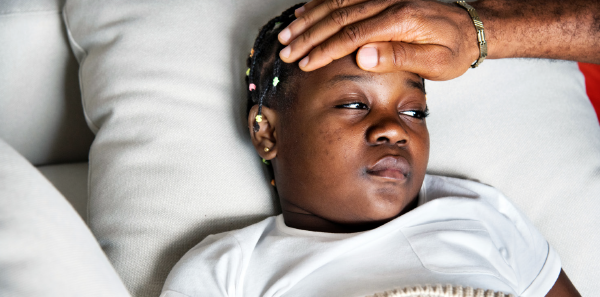
Question 1: What does recent literature say about antipyretics and febrile seizure recurrence?
Explore This Issue
ACEP Now: Vol 39 – No 03 – March 2020How often have you had to explain that it’s not the fever that actually caused the febrile seizure? Regarding subsequent recurrences of febrile seizures, a 2017 Cochrane systematic review included two studies evaluating the administration of prophylactic antipyretics—either ibuprofen alone or diclofenac followed by acetaminophen or ibuprofen—compared to placebo.1 The authors found that antipyretics did not lower the recurrence of febrile seizures when measured over a 24-month period. A prior systematic review and meta-analysis by Rosenbloom et al arrived at a similar conclusion.2
The first double-blind, randomized, controlled trial by van Stuijvenberg et al in this Cochrane review included 230 children ages 1 to 4 years, compared ibuprofen 5 mg/kg to placebo, and assessed recurrent febrile seizures over a two-year period.3 Whenever children developed a fever over the next two years, the parents were instructed to administer ibuprofen every six hours until the child was fever-free for 24 hours. The primary outcome was a first recurrence of febrile seizure. In the ibuprofen group compared to placebo, the febrile seizure recurrence was 32 percent versus 39 percent, respectively (recurrence risk 0.9; 95% CI, 0.6–1.5). While there was no significant reduction in recurrence, it is important to note that the dosage of ibuprofen used was lower (5 mg/kg rather than 10 mg/kg) than is typically used for antipyresis.
The second double-blind randomized, controlled trial in this same review was by Strengell et al.4 The authors evaluated 231 children ages 4 months to 4 years from five hospitals who had their first febrile seizure. Children received rectal diclofenac (1.5 mg/kg) or placebo at presentation, followed by either acetaminophen (15 mg/kg), ibuprofen (10 mg/kg), or placebo every eight hours until the fever resolved. They also received the same antipyretic—or placebo—for subsequent febrile illnesses over the next two years. The acetaminophen and ibuprofen dosing in this study is consistent with current routine antipyretic dosing. In this study, febrile seizures recurred in 23.5 percent of children who received placebo only versus 23.4 percent in children who received antipyretics (P=0.99; 95% CI, –12.8 to 17.6).
Since these systematic reviews, a more recent randomized prospective study of 423 children ages 6 months to 6 years by Murata et al evaluated febrile seizure recurrence during one febrile illness only (ie, not across multiple illnesses).5 Exclusion criteria included children with two or more febrile seizures during the febrile illness, status epilepticus, or structural or metabolic disorders; children presenting with diarrhea (due to rectal delivery of the drugs in this study); and children who had received benzodiazepines or antihistamines. Children were randomized to: 1) rectal acetaminophen (10 mg/kg) followed by the same dose of rectal acetaminophen every six hours for the next 24 hours for persistent fever >38º C or 2) no antipyretics for 24 hours. In this study, febrile seizure recurrence was 9.1 percent (20 of 219) in children who received rectal acetaminophen versus 23.5 percent (48 of 204) who received no antipyresis (P< 0.001), suggesting that rectal acetaminophen at 10 mg/kg decreased recurrent febrile seizures in the same febrile episode. Of note, this study was performed in Japan, where the authors report a febrile seizure incidence of 7 to 11 percent with recurrences in approximately 15 percent of children during the same febrile illness. This incidence rate, the authors note, is higher than the more commonly reported 2 to 5 percent.
Pages: 1 2 | Single Page







No Responses to “What Do Studies Say About Antipyretics and Febrile Seizure Recurrence?”